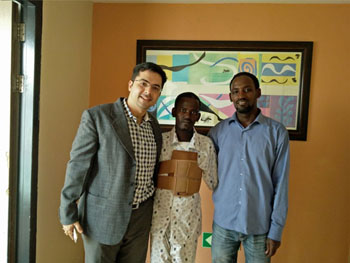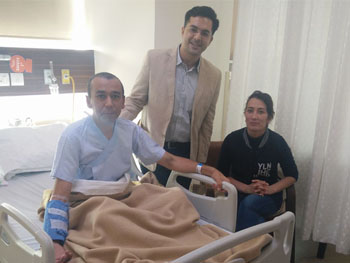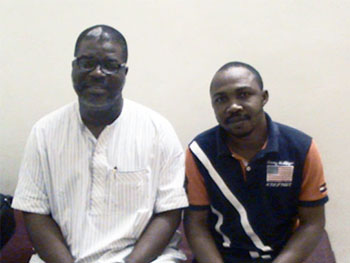Kidney Transplant Surgery, Low Cost, Best Hospitals and Top Surgeons India
Organ Donation – an overview
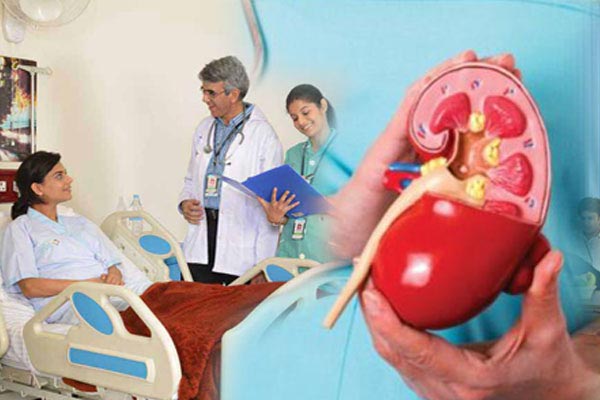
Organ donation can be called the best inheritance that we can leave behind. It is one of the most beautiful gifts that we humans are capable of gifting to one another – a lease of new life. Today, with the field of medicine progressing and undergoing revolutionary advancements, it is extremely viable for a human to donate selected organs to fellow human being. Organ donation is like the last hope for survival for many people around the globe. But sadly, the number of people waiting to receive an organ is mostly higher than the people, who are eager to contribute towards this cause.
While our body overall depreciates during the lifetime, sometimes diseases or genetics may attack and destroy one specific organ while the remaining body remains comparatively healthier. It depends on which organ is wearing down. There are various life-sustaining treatment options before transplantation that can be helpful to improve your health. For example, when it comes to kidneys, dialysis helps a person who has damaged kidneys. But, the rest of the body has to bear the brunt due to the side effects. A person on dialysis faces a higher risk of cardiovascular disease because dialysis brings down the amount of antioxidants that generally fight toxins within our body
Video - Kidney Transplant Surgery in India
Types of organ donation
There are principally two types of organ donation – living donation and deceased donation.
- Living organ donation
Living donation is when someone donates a portion of their liver or one of their kidneys to a patient while the donor is still alive. Living donors can donate one kidney, a lung, or a portion of the liver, pancreas, or intestine.
Free Consultation
No more Kidney Dialysis, get Kidney Transplant in India!
Showcasing the Impeccable Expertise for Kidney Transplant Surgery
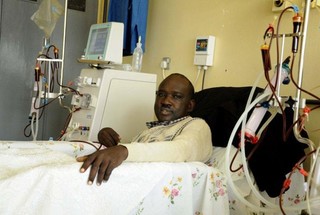
Joy from Uganda
A countless number of kidney transplant surgeries flawlessly accomplished at India Organ Transplant brilliantly reflects our success stories. One such case is of a 50 years old man from landlocked country of Uganda, Joy.
Low cost Kidney Transplant in India
This offers an alternative for people waiting for a deceased donor, and it increases the number of organs available, saving more lives. Living donors can be friends, spouses, family members, or altruistic donors, who wish to help someone in need.
- Deceased organ donation
It is important to remember, that deceased donation is only possible after all attempts to save the patient’s life have been tried, and brain death has been declared. Even though the person, who is brain dead, is technically dead, but the organs would be still functioning and hence appropriate for organ donation. Such a donor can donate kidneys, liver, lungs, heart, pancreas, and intestines. In 2014, hands and faces were added to the organ transplant list.
About Kidneys
The kidneys are bean-shaped organs in the human body, each approximately the size of a fist. They are located just below the rib cage, one located on each side of the spine. Every day, our kidneys process about 200 quarts of blood to filter out about 2 quarts of waste products and excess water. These wastes become urine, which flow to the bladder through tubes referred to as ureters. The bladder stores urine till it is released through urination. These wastes in the blood come from the normal breakdown of active tissues, such as muscles, and from the consumed food. Once the body has taken what it needs from food, the wastes are sent to the blood. If the kidneys do not remove these wastes, then these wastes would build up in the blood and can affect the body.
The real removal of wastes happens in tiny units inside the kidneys called Nephrons; each kidney having around a million Nephrons. There is a glomerulus in the nephron, which is a tiny blood vessel, or capillary-intertwines with a small urine-collecting tube called a tubule. This glomerulus acts as a filtering unit, or sieve, and keeps normal proteins and cells in the bloodstream, ultimately allowing extra fluid and wastes to pass through. Then, a complicated chemical exchange takes place, where waste materials and water leave the blood and enter the urinary system.
At first, the tubules receive a combination of waste materials and chemicals, which the body can still use. The kidneys measure or sift out the chemicals like sodium, phosphorus, and potassium and release them back to the blood and control the body's level of these substances.
Further, in addition to removal of the wastes, the kidneys release three vital hormones:
- erythropoietin, or EPO, which stimulates the bone marrow to make red blood cells
- renin, which regulates blood pressure
- calcitriol, the active form of vitamin D, which helps maintain calcium for bones and for normal chemical balance in the body
Why do Kidneys fail?
Maximum kidney or renal ailments attack the Nephrons, which cause these to lose their filtering capacity. This kind of damage to the Nephrons can happen suddenly, or may result due to injury or poisoning. But most kidney diseases destroy the nephrons slowly and silently. The damage may appear after years or even decades. Most kidney diseases attack both kidneys simultaneously and the two most usual causes of kidney diseases are Diabetes and High Blood Pressure. Further, people with a family history of any kind of kidney problem are also at risk for kidney disease.
Common Causes of End-Stage Renal Disease
- Diabetes Mellitus
- High blood pressure
- Glomerulonephritis
- Polycystic Kidney Disease
- Severe anatomical problems of the urinary tract
Treatments
The cure and treatment options for end-stage renal disease are:
- Hemodialysis, which is a mechanical process of cleaning the blood from waste products;
- Peritoneal dialysis, in which waste products are removed by passing chemical solutions through the abdominal cavity;
- and kidney transplantation.
- Living Donor
- Deceased Donor
However, a transplant is the best answer to getting close to a normal life again. In this, the failed kidneys are swapped by transplanted kidneys. This procedure comes from two sources:
However, a Kidney Transplant in India is the best answer to getting close to a normal life again. In this, the failed kidneys are swapped by transplanted kidneys by the Renal Transplant Specialists in India. This procedure comes from two sources:
A deceased donor kidney comes from an individual, who has suffered a brain death; someone who can give consent to organ donation at the time of death or even allows families to provide such permission as well. After this, the kidneys are removed and stored till the time a recipient has been selected.
Kidney Transplant Surgery Cost in India
The average Cost of Kidney Transplant Surgery in India is around Rs.9,60,000 ($12,000) to Rs.12,80,000 ($16,000). The cost depends on several factors like the type of procedure, surgeon's fees, hospital charges and other associated costs
List of Best Hospitals for Kidney Transplant in India
- Medanta Hospital, Gurgaon
- Max Healthcare Hospital, Delhi
- Apollo Hospital, Delhi
- Fortis, Delhi
- Blk Super Speciality Hospital, Delhi
- Dharamshila Narayana Superspeciality Hospital, New Delhi
- Sir Ganga Ram Hospital, Delhi
- Saroj Super Speciality Hospital, Delhi
- Manipal Hospital, Bangalore
- Artemis Hospital, Gurgaon
- Wockhard Hospital, Mumbai
- Jaslok Hospital, Mumbai
- Lilavati Hospital, Mumbai
- Excel Hospital, Mumbai
- Jupiter Hospital, Thane, Maharashtra
- Global Hospital, Chennai, Tamil Nadu
- PSG Hospital, Tamil Nadu
- Kokilaben Dhirubhai Ambani Hospital, Mumbai
- P D Hinduja Hospital and Medical Research Centre, Mumbai
- Sir H N Reliance Foundation Hospital, Mumbai
- Dr. Kamakshi Memorial Hospital, Chennai, Tamil Nadu
- Kauvery Hospital, Chennai
- Billroth Hospital, Chennai, Tamil Nadu
- Sri Ramachandra Medical Centre, Chennai, Tamil Nadu
- KIMS Hospital, Hyderabad
- Continental Hospital, Hyderabad
- Aster Medcity, Kochi Kerala
- Amrita Hospital, Kochi
- Paras Hospital, Patna
- Sahyadri Hospital, Pune
List of Top Kidney Transplant Surgeons in India
- Dr. Niranjan Kulkarni
- Dr. Rajesh Goel
- Dr. Sanjay Gogoi
- Dr. S. N Wadhwa
- Dr. Saurabh Pokhriyal
- Dr. Ravi Bansal
- Dr. Ashok Sarin
- Dr. Sandeep Guleria
- Dr. Waheed Zaman
- Dr. Anant Kumar
- Dr. B Shiva Shankar
- Dr. Bijoy Abraham
- ORGAN TRANSPLANTS PERFORMED THIS YEAR- 73
- PATIENT SATISFACTION- 97%
- DEDICATED SUPPORT PHYSICIAN FOR EACH PATIENT
- INTERNATIONAL MEDICAL CLINICS- 6 EVERY YEAR
- CHARITY SUPPORT TIE UPS FOR ECONOMICALLY POOR PATIENTS
Request your appointment with the Top Kidney Surgeons in India at the Best Kidney Transplant Hospitals in India.
Phone Numbers Reach Us India & International:
+91 9765025331
The Evaluation Procedure
In any case of Kidney Transplant – living donor or deceased donor – blood tests are done to find out the type of blood and tissue. These tests results facilitate the matching of a donor kidney to the recipient.
Blood Type Testing – This establishes the blood type. The recipient and donor should have either the same blood type or compatible ones, unless they are participating in a special program that allows donation across blood types. Below list shows compatible types:
- If the recipient blood type is A then the Donor blood type must be A or O
- If the recipient blood type is B then the Donor blood type must be B or O
- If the recipient blood type is O then the Donor blood type must be O
- If the recipient blood type is AB then the Donor blood type can be A, B, AB, or O
- The blood group AB is the most convenient to match, the reason being that this individual can accepts all other blood types.
- But the Blood type O is the hardest one to match. Although people with blood type O can donate to all types, they can receive kidneys only from donors having Blood type O. So, if a patient with blood type O receives the kidney from a donor having Blood group A, then the body would reject or destroy it, recognizing it to be a foreign body.
Tissue Typing – This is a blood test for human leukocyte antigens (HLA). Antigens are markers found on many cells of the body, which distinguish each person as unique and these markers are inherited from the parents. Both recipients and the potential donors have tissue typing performed during the evaluation process.
Crossmatch – The human body makes substances called antibodies which are very vital because they destroy the foreign materials. Individuals may make antibodies every time there is an infection, with pregnancy, have a blood transfusion, or undergo a kidney transplant. If there are antibodies to the donor kidney, the body may destroy the kidney. For this reason, when a donor kidney is available, Crossmatch is done to ensure that the recipient does not have pre-formed antibodies to the donor.
This process is done by mixing the recipient's blood with cells from the donor. If the crossmatch comes positive, it means that there are antibodies against the donor and the recipient should not receive this kidney, unless a special treatment is performed to reduce the antibody levels. If the crossmatch is negative, that means the recipient does not have antibodies to the donor and is eligible to receive this kidney. Crossmatches are performed many times while preparation for a living donor transplant and a final Crossmatch is done within 48 hours before this type of transplant.
Serology – Tests are also done for viruses, such as HIV (human immunodeficiency virus), hepatitis, and CMV (cytomegalovirus) in order to choose the proper preventive medications after transplant. These viruses are checked in any potential donor to help stop the spreading disease to the recipient.
Fill up the enquiry form to know the Kidney Transplant in India Cost at the Best Kidney Transplant Hospitals in India.
Reasons of Excluding Transplant Recipient
- Irreparable Cardiovascular disease
- History of metastatic Cancer or ongoing Chemotherapy
- Active systemic infections
- Unmanageable psychiatric illness
- Current neurological impairment with significant cognitive impairment and no surrogate decision maker
The Procedure
The procedure generally takes 2-4 hours and is done under general anaesthesia. This kind of operation is referred to as a Heterotopic Transplant, which means that the kidney is placed in a different location than the existing kidneys. Liver and Heart transplants are Orthotopic transplants, in which the diseased organ is removed and the transplanted organ is placed in the same location. The original kidneys are not usually removed unless they are causing severe problems such as uncontrollable high blood pressure, frequent kidney infections, or are greatly enlarged. The artery that carries blood to the kidney and the vein that carries blood away is connected to the artery and the vein that is already present in the pelvis of the recipient. The ureter, or tube, that carries urine from the kidney is connected to the bladder. The span of hospital stay is usually 3-7 days. Contact us to know the Success Rate of Kidney Transplant in India at the Best Hospitals for Kidney Transplant in India.
The possibility of complications is there with any surgery. The following complications are very rare but can happen:
- Bleeding, infection, or wound healing problems
- Difficulty in the circulation of blood to the kidney or problem with the flow of urine from the kidney
These complications may require another surgery to correct them.
Rejection Episodes
Now-a-days, chances of rejection are much lesser due to the advancements in the post transplant and immunosuppressive medicines. At the same time, the risk of rejection varies from person to person. For most people, rejection can be prevented with the help of special anti-rejection medicines. But it is very crucial that the patient is very regular about the follow ups to keep a check on how well the kidney is working. This will immensely help the person in getting back to his or her regular life sooner. Request an appointment for Low Cost of Kidney Transplant in India with Best Doctors for Kidney Transplant in India by sending us your query.
Benefits of Kidney Transplant
There are many benefits of having a Kidney Transplant from the Best Kidney Transplant Surgeons in India as compared to sustaining on Haemodialysis. A Kidney Transplant:
- Eliminates the need for Dialysis and helps the patients enjoy a fulfilling life with less number of restrictions like more freedom to travel, more energy and productivity
- Gives increased and enhanced life expectancy and better quality of life.
- Is much more effective and less costly than Dialysis.
Living with a Kidney Transplant
After this surgery, it is recommended that some major lifestyles changes are followed by the individual.
- Quit smoking (if the person smokes)
- Eat a healthy diet.
- If obese then the person should try to lose weight .
Why India is a perfect for availing this procedure?
The healthcare sector of India is much advanced and mature than many other leading nations around the world. This has placed India in an extremely advantageous position as a healthcare tourism industry. India is home to highly progressive hospitals catering to patients from across the globe. The hospitals in India have world-class facilities and the Top Kidney Transplant Surgeons in India are extremely talented and skilled with many years of experience. Further, quality of care and reasonably priced treatment availability are the two most attractive features that attract the medical tourists. If supreme quality comes at an affordable cost then it is an unbeatable advantage that has worked wonders for Indian medical tourism. This amalgamation of highest quality and cost advantage is unique for India. All these above mentioned benefits are easily viable in all the 'centres of excellence' in India. Fill up the enquiry form to schedule appointment with the Best Kidney Transplant Doctors in India at the Top 10 Kidney Transplant Hospitals in India.
Phone Numbers Reach Us India & International:
+91 9765025331
Our Success Stories
Mr.Abba Mehmoud Musa, Sudan
Sudan Patient's Successful Liver Transplant Journey to India
Many a times due to certain reasons like excessive alcohol, fat deposit or any other complication, the liver gets damaged...
Read More
Mr. Sartaj Musumonov, Uzbekistan
Success Story of Bone Marrow Transplant Surgery in India
It is extremely difficult to understand the medical situation if one is not from a medical background. Here is one more...
Read More
Mr. Abubakar Abdullahi Jam, Nigeria
A New Phase of Life after Kidney Transplant Surgery India
Mr. Abubakar Abdullahi Jama was mournful due to high constant fever, diarrhea, and vomiting. He felt that it was normal...
Read More

